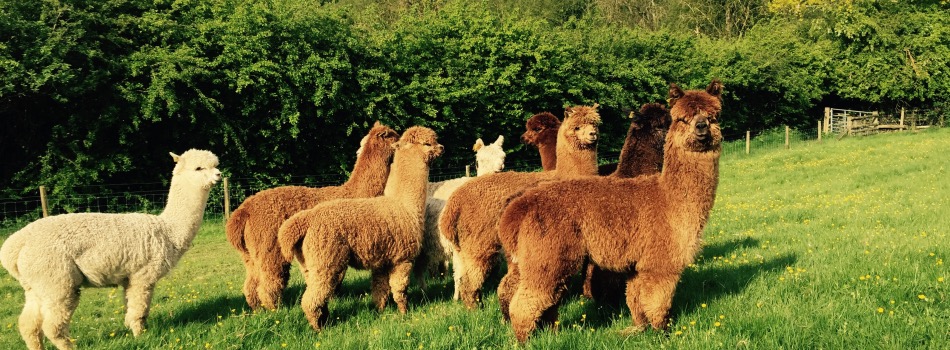ALPACA DOWNSIDE
The biggest downside of alpacas is that they are extremely rare. There can only be about 3,500,000 alpacas in the whole world. To put this in perspective there are around 18,000,000 sheep in the UK alone.

Alpacas, being in relatively short supply in the UK, are expensive. Every season the selective breeding improves dramatically the quality of the stock available. Every season the depth of pedigree improves with every selection.
The cost of a quality pedigree pregnant female at present is anywhere between £3,000 - £10,000. Stud males can be more expensive depending on the specific bloodline. Male, wethers (castrated males unsuitable as sires) sell for between £300 - £750. Older girls depending ontheir pedigrees can be a littel cheaper than £3000 but they may only have a few breeding years left in them.
Alpacas, being a herd animal, cannot be kept isolated, and therefore it is vital that the initial purchase be at least two animals.
Alpacas give birth to only one cria per annum. It doesn't take a genius to work out that building up a herd is a long-term project.
Alpaca sires of proven superior quality are at a premium, and as such tend to attract substantial stud fees.
Alpacas have to be mated before they start to ovulate and are at their most receptive about 14 days after giving birth. As the aim of the fibre industry in the UK is to selectively mate to continually improve stock and fibre, it is vital that great attention is paid to choosing the best sire possible for any given female. Unless you are lucky enough to have the right sire for your particular female in house, mating tends to be a long process involving transporting your animal to the chosen sire and leaving her there for roughly eight weeks. It takes this long to mate regularly with the chosen sire and confirm with ultrasound the animals status before a return to the home farm. Given that the female will be nursing her young cria during this time you tend to miss out on two of the early months of your cria's development.
Alternatively there are drive by, mobile mating services available.
Artificial insemination does not yet exist for alpacas.
WARNING!!! Alpacas attract an awful lot of interest and there will inevitably be a lot of questions to be answered from the curious passerby- be warned if you don't like talking to people don't think about a career in alpacas.